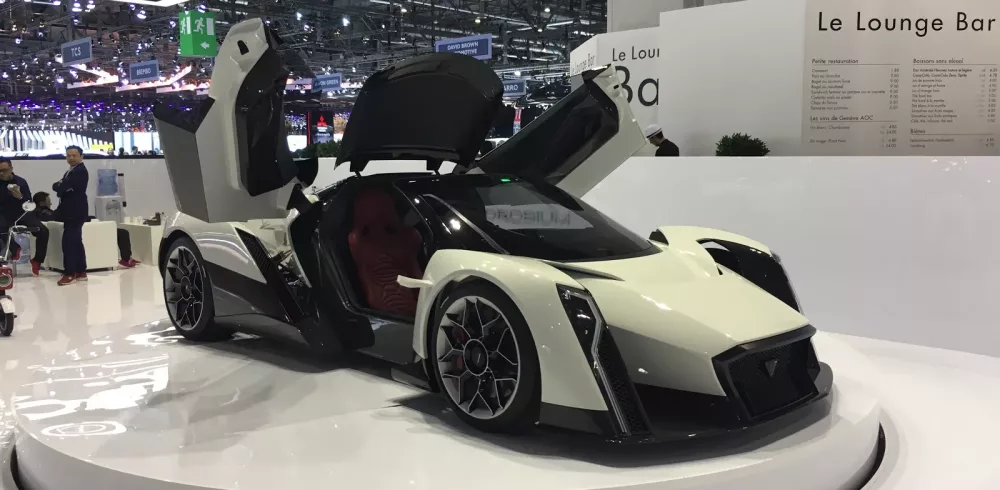New company Dendrobium Automotive will be developing and building the ‘British engineering tour de force’, a 200mph electric supercar. The D-1 electric supercar will reportedly achieve 0-60mph in just 2.7 seconds, around the same time as the McLaren Senna, Bugatti Veyron and BAC Mono.
Dendrobium Automotive Ltd falls under Singapore-based Vanda Electrics and it shows its Asian heritage in the vehicles’ design with rear-hinged doors and roof that are petal-shaped like the vanda orchid – Singapore’s national flower.
“We are developing unique cabling and connector systems, as well as our own complete vehicle integration and ADAS hardware and software. From a technical perspective, the D-1 will be a British engineering tour de force,” said CEO and chairman of Dendrobium Automotive, Nigel Gordon-Stewart.
The electric supercar concept made its debut in March at the Geneva motor show 2018 and it used a single motor and a lithium ion battery pack, based on the Formula E setup that Williams Advanced Engineering (WAE) designed for its race series.The prototype car is the product of WAE, whose engineers turned the initial design into the finished automotive.
To make it possible for the car to hit 200mph, the automotive needs a four-wheel drive, a two-speed gearbox and most likely three electric motors – one at the front and two at the rear.
As the UK government has called for half of all new British car sales to be low emission by 2030, creating automotives using sustainable energy sources is becoming increasingly necessary. Earlier this year, Lightyear, a Dutch manufacturer, announced it is to build a completely solar powered car, which can reportedly be driven for months without charging.
Lightyear has reportedly invested in technologies to build laminate solar cells for automotive use. To fully achieve its mission however, the battery needs to be such that the vehicle can be driven at anytime, even at night – which the company claims it can create.
Other businesses are also looking into implementing cleaner strategies and reduce emissions.
Manufacturing & Engineering Magazine | The Home of Manufacturing Industry News









